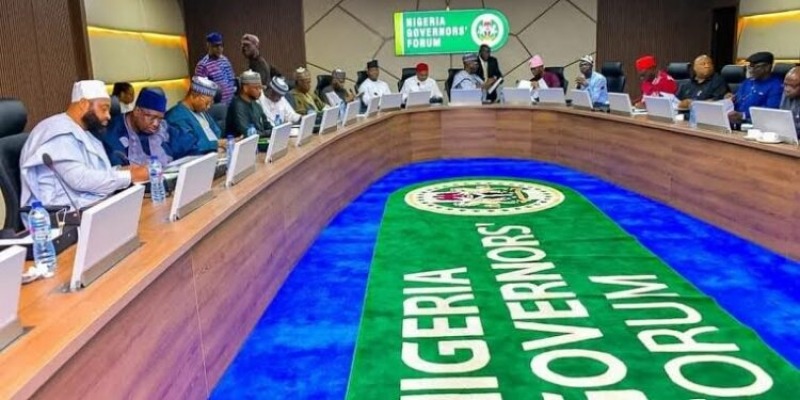Nigerian Governors Endorse Major Tax Overhaul: A New VAT Sharing Formula
 In a significant move towards reforming Nigeria’s outdated tax system, Nigerian governors have expressed strong support for the federal government’s proposed tax reform bills, which include a major overhaul of the value-added tax (VAT) structure. This announcement follows a crucial meeting of the Nigeria Governors’ Forum (NGF) and the Presidential Tax Reform Committee held on Thursday.
In a significant move towards reforming Nigeria’s outdated tax system, Nigerian governors have expressed strong support for the federal government’s proposed tax reform bills, which include a major overhaul of the value-added tax (VAT) structure. This announcement follows a crucial meeting of the Nigeria Governors’ Forum (NGF) and the Presidential Tax Reform Committee held on Thursday.
The governors, in a formal communique issued after the meeting, endorsed the comprehensive modernization of the nation’s tax laws, highlighting the need to align with global best practices and enhance fiscal stability. The forum emphasized that the reforms are crucial for Nigeria’s economic growth and sustainability.
One of the key proposals discussed was the introduction of a new VAT-sharing formula, aimed at promoting equitable resource distribution across the country. The governors proposed a formula that allocates 50% based on equality, 30% based on derivation, and 20% based on population. This distribution, they believe, will ensure fairness and address longstanding concerns of resource imbalance.
The governors also advocated for a pause on increasing the VAT rate or reducing Corporate Income Tax (CIT) at this time, in order to maintain the country’s economic stability. Additionally, they stressed the importance of exempting essential goods and agricultural products from VAT to safeguard citizens’ welfare and boost agricultural productivity.
Sticking to the Legislative Process
Despite the controversial nature of the tax reform bills, which have sparked heated debates across the country, the NGF has firmly supported the continuation of the legislative process. The governors urged lawmakers at the National Assembly to proceed with the passage of the tax reform bills.
Last year, President Bola Tinubu introduced four critical tax reform bills to the National Assembly. These include the Tax Administration Bill, Nigeria Tax Bill, and the Joint Revenue Board Establishment Bill, all aimed at streamlining Nigeria’s tax system. Perhaps the most controversial aspect of the proposal is the push to repeal the existing law that establishes the Federal Inland Revenue Service (FIRS) and replace it with the Nigeria Revenue Service.
However, the proposals have not been met without opposition, particularly from northern governors and some regional leaders, who have expressed concerns that the reforms may disproportionately affect the northern region. Some even argue that the bills are “anti-north.” Despite the resistance, President Tinubu has remained resolute, insisting that the reforms are not designed to disadvantage any region and are necessary for Nigeria’s long-term economic health.
As the tax reform process continues, all eyes will be on the National Assembly to see whether these proposals can overcome the regional tensions and pave the way for a modern, fair, and effective tax system in Nigeria.













